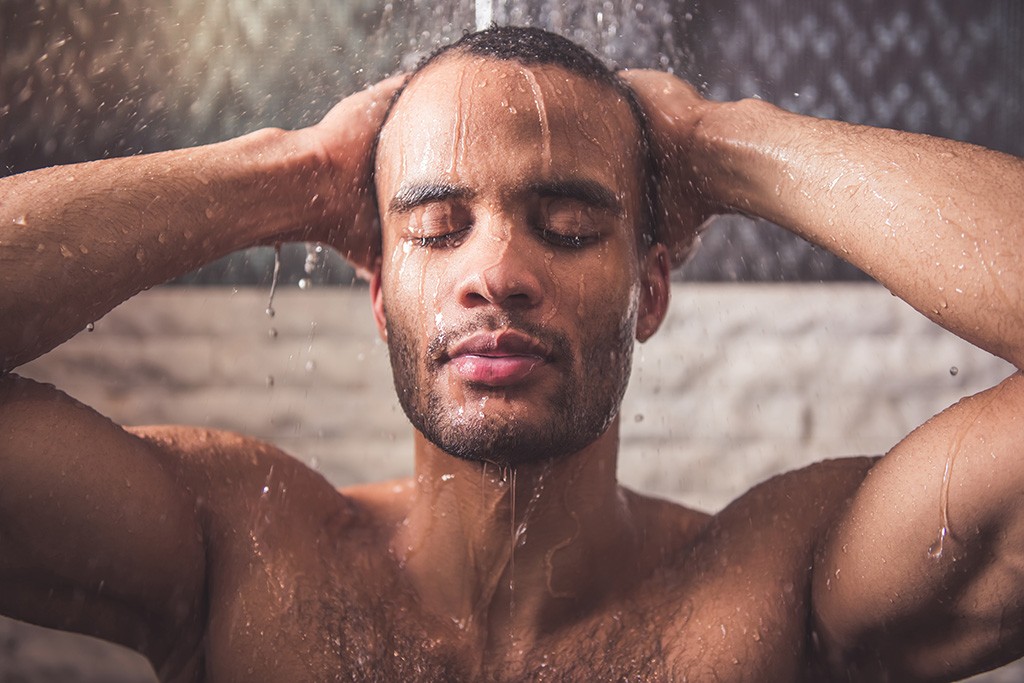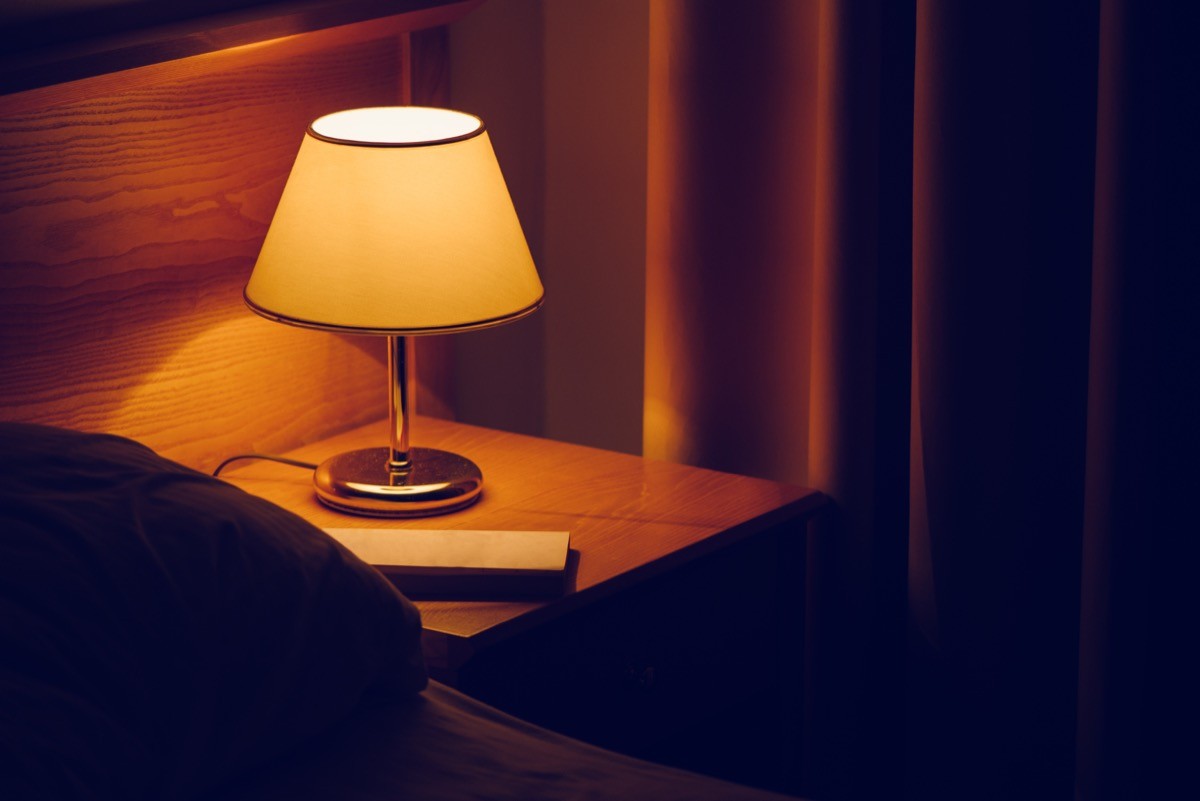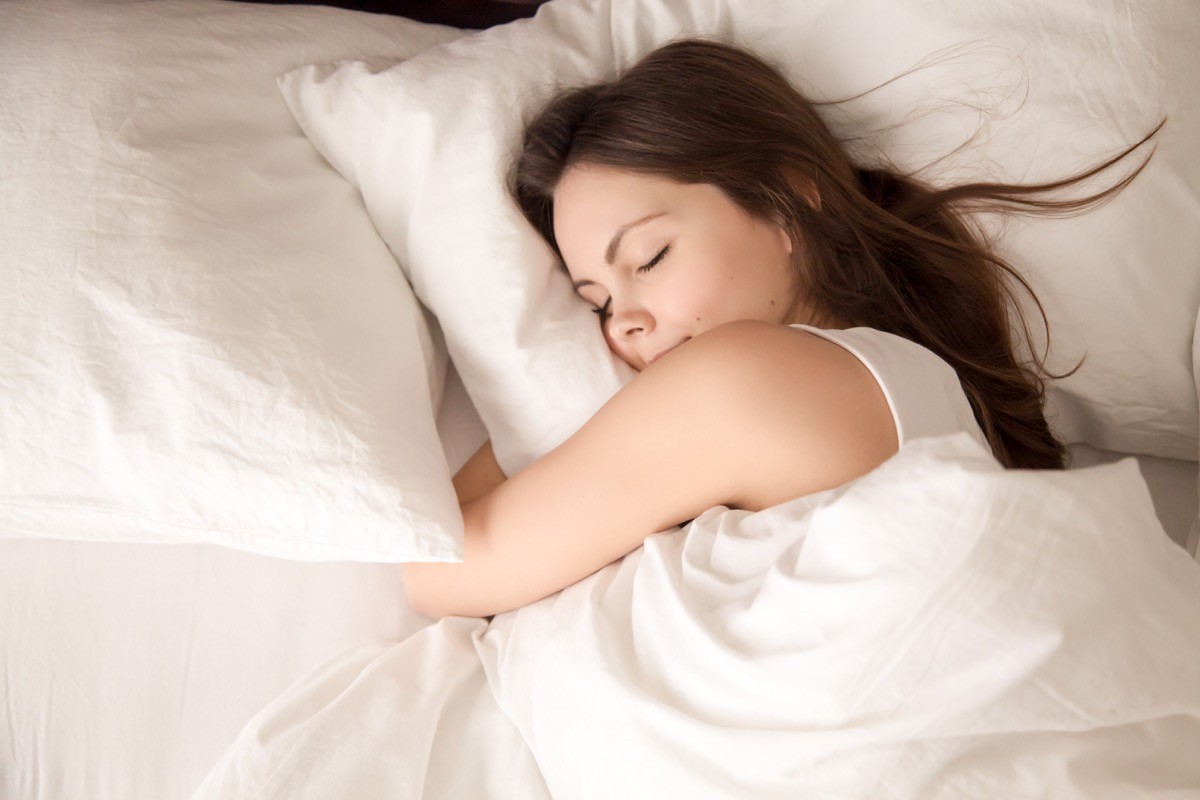Doctor Reveals 3 Easy Ways to Get a Better Night’s Sleep—Without Changing Your Bedtime

I’m a terrible sleeper. My mind starts racing as soon as my head hits the pillow, and I lay there tossing and turning. My husband’s advice (spoken like someone who has no trouble sleeping) is just to get in bed earlier. But as my fellow insomniacs know, it’s not that simple. So, I was all ears when I heard Christian Poulos, MD, share three easy ways to get a better night’s sleep without changing your bedtime. Read on to learn what the doctor-turned-fitness coach recommends.
RELATED: This Common Sleep Habit Could Raise Heart Attack and Stroke Risk by 26%, New Study Finds.
1
Take a hot shower.

Shower in the morning? Well, according to Poulos’ recent TikTok video, you may want to adjust your routine to sleep better.
“If you take a hot shower right before bed, your body temperature rapidly rises and falls, mimicking the natural cooling process that signals your brain it’s time to wind down,” he shares.
But don’t make your shower too hot. As Best Life previously reported, frequently taking very hot showers can wreak havoc on your skin and hair, and can cause dangerous drops in blood pressure.
“The ideal water temperature for a shower is between 98 and 104 degrees Fahrenheit,” Peter Bailey, MD, a family practice physician and medical expert for Test Prep Insight, told us. “This is the optimal temperature range for maintaining comfort and body temperature, while washing away sweat, dirt, bacteria, and other particulates.”
In fact, a 2019 study found that showering before bed with water around 104 degrees helps people fall asleep 10 minutes faster.
2
Stop eating three hours before bed.

Next, Poulos says, “If you stop eating three hours before bed, your heart rate will drop faster while you’re sleeping, allowing you to get more restful sleep.”
And when you have this final meal, you can even consider eating certain foods that can help you sleep, including magnesium-packed walnuts, fiber-rich oats, or kiwi fruit, which have a lot of serotonin, a precursor to melatonin.
RELATED: This Uncommon Supplement Can Improve Your Sleep and Mood, New Study Says.
3
Dim your lights two hours before bed.

Finally, Poulos recommends dimming the lights in your home two hours before bed “to trigger the natural release of melatonin, helping you get into a sleepier state.”
To that point, you should also avoid looking at blue light from your phone or other electronic devices.
As the Sleep Foundation explains, “Blue light suppresses the body’s release of melatonin, a hormone that makes us feel drowsy… Being exposed to blue light in the evening can trick our brain into thinking it is still daytime, disrupting circadian rhythms and leaving us feeling alert instead of tired.”
You can also lower your thermostat.

Though Poulos doesn’t mention it in his video, many experts note that a too-warm room can disrupt sleep quality.
“Your body’s temperature naturally drops as you sleep so a cooler room makes it easier to fall and stay asleep,” explains the Sleep Foundation. They say the ideal sleep temperature is between 65 and 68 degrees.